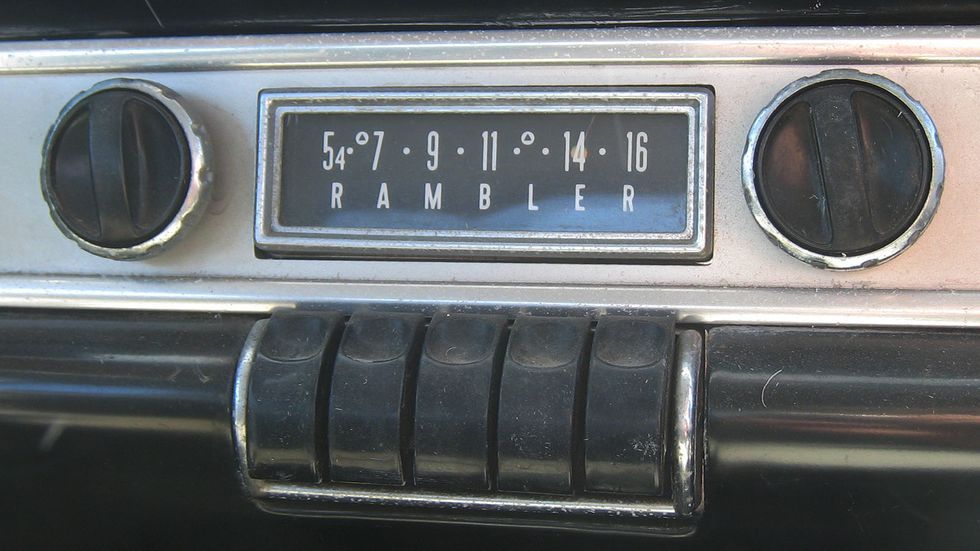The Trivializing of History
October 14, 2021
Thirteen days in October.
“What’s the Cuban Missile Crisis?”
With 38 consecutive game wins, Matt Amodio now holds the record for the second longest Jeopardy winning streak. He also pocketed over $1.5 million. I don't know if this was ever a Jeopardy answer, but if it was, and one of the millions of fans watching and playing along at home shouted the correct question, someone may have praised them for their knowledge. And I can hear this person responding, "I'm good at history."

Photo credit: The JFK Presidential Library and Museum
We all know someone who claims to be good at history then recites the presidents in order or challenges someone to stump them on the date of a historic event. Many newspapers have a section titled something along the lines of “On this day in history” and offer a list of dates and events.
This isn’t history. It’s trivia. Knowing the date of the signing of the Declaration of Independence or the murder of Emmitt Till may help you be competitive at trivia night at the corner pub, or the family member relatives want to partner with when Aunt Martha breaks out the quiz cards after Thanksgiving dinner. But it doesn’t make you good at history.
Two-thirds of respondents to a national survey
conducted in 2020 by the American Historical Society in partnership with Fairleigh Dickinson University consider history to be a collective of names, dates, and events. Participants were asked how they defined history and given five choices. In response, 66% said it is names, dates, and other facts about the past, 17% said it is an explanation of experiences from the past, 9% believe it is what historians conclude, 5% think it is what people remember about the past, and 3% think it is something else other than these four.
Why does a large portion of the population think history is a quiz show? We are a product of our experiences. Given a choice of selecting whether their high school history educational experience emphasized facts or questions about the past, 76% of the respondents to this survey said it emphasized facts. When given these same two choices to evaluate their college experience, only 44% of the survey's participants said their college learning was fact-focused.
In a post last year,
I observed, “Historian John H. Arnold says history is an argument between the past and the present, between what happened and what will happen next. History’s varied arguments are ongoing. They expand and contract based on the availability of evidence and the nature of its sources." These are arguments based on facts, but facts much broader than dates and places of an event. It's the nature of the event itself, the arguments that follow, and the expanding narrative. It’s a story developed by examining and evaluating theories, facts, opinions, misunderstandings, and lies - all weighed against the evidence.
In one of my college-level classes, we study the leadership of John Kennedy and his historical impact. A key event from his presidency is the Cuban Missile Crisis.
I am surprised by the number of students who, if they know there was a crisis, are unaware of how close we came to nuclear war in October 1962. But the history in those thirteen days is not in the date Kennedy learned the Russians placed missiles in Cuba capable of firing nuclear warheads into the United States (October 16), when he gave his speech to the nation (October 22), or when Khrushchev announced the Soviets would dismantle the missiles (October 28). The history is in the conversations Kennedy had with his generals, cabinet members, and closest advisors as the crisis evolved and his application of lessons learned from the failed invasion of Cuba in April of 1961. It’s in understanding Khrushchev’s decision to place the missiles in Cuba and then to remove them. It’s also in how a Soviet submarine commander, Vasili Arkhipov, saved the world from an accidental start of World War III and in Castro's letter to Khrushchev delivered in the middle of the crisis. Most importantly, it's in how this incident impacted the United States' strategic thinking on the use of nuclear weapons in first and responsive strikes and our ongoing relationship with the Soviet Union.
In teaching history to non-history majors, I use dates simply as markers of time. Instead, I stress the importance of students gaining perspective on the political, economic, and social cultures during the periods we study and focus on students understanding how incidents unfolded during these times and their short- and long-term impacts. I do not test on dates and would rather a student understand groupthink and its dangers to the decision-making process and the country, or how the missile crisis and its aftermath influenced Kennedy’s thinking on our Cold War relationship with the Soviet Union.
I appreciate high school and non-history major college students' level of interest and ability and the testing requirements high school teachers face. However, I believe history teachers at all levels have a responsibility to include an understanding of what history is in their lessons, and emphasize history's ongoing arguments more and its dates less.
Matt Amodio was a frequent participant in a bar trivia contest.
The contest host said Amodio was strongest in science, history, and geography and credited Amodio’s attendance as a factor in his success as a contestant. Amodio refers to himself as a "trivia enthusiast," not someone good at history, and the host credits himself with being a solid trivia host, not a history teacher.
Historians as researchers are tasked with finding and evaluating the evidence and developing the story. Historians as educators are responsible for facilitating strategic thinking and inciteful decision-making processes. They are not responsible for creating Jeopardy contestants or trivia night winners.
Like what you read?
Subscribe to my mailing list and get notifications to your inbox when my next blog post goes live.
Contact Us
More By Joe


